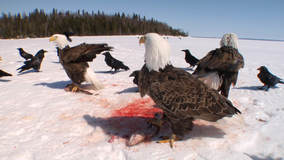
It also stokes a fire within me to write better.
 It makes me cringe to hear a person who is clearly incompetent boast of their abilities. Inevitably, my mind jumps to my current self-promotion of my books. I ask myself if I am any better? It humbles me and censors my exhuberance. It also stokes a fire within me to write better.
0 Comments
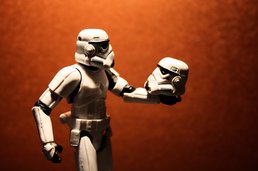 If you are reading this, you are likely someone who also contemplates existence and the best way to spend our remaining time on this earth. This may mean becoming the best doctor or lawyer or actor or writer you can be. For me, I am trying to become the best person I can be, sans label. My nephew asked me what I do. Am I an author? Am I a 'businessman' (whatever that means)? What do I do 'for a living'? Leave it to a child to ask the hard questions... When I was in university, I was friends with two of the smartest people I knew. One was the head medical librarian for the Health Sciences in Winnipeg. The other was the retired dean of Biochemistry at the same institution (it was/is part of the University of Manitoba). It helped that they were married so I got to see them both at the same time. At the time (1987), I was an early AI (artificial intelligence) programmer--I was 16 and didn't know any better. While I say AI, it was really a series of logic-maps that made the user feel like the computer was thinking; it was nothing even approaching what they are doing today. I was helping build medical tutorials for Cambridge university. I was only the programmer; I did what I was told. At the time, I felt very special and important. They treated me as a person with potential--and they talked to me like a friend. The librarian would tell me that she was still wondering what she would do when she grew up (she was 65 at the time). The retired dean would talk to me about a book he was reading and ask my viewpoint on a number of things. He always had a smile on his face, even when he was grumbling about his body falling apart. At the time, I thought I would be a doctor or computer programmer. Then I was introduced to John Milton through my grade 12 English teachers (they had two teachers for the programme I was in). Paradise Lost changed my life. I took a year off and travelled (hitch-hiked Europe and Middle East) for a year before returning to university to study English and History. I got my Education degree in case I dropped out and wanted to teach. As it happened, teaching wasn't for me and I turned to Law. As it happened, I didn't find the law as inspiring as I had hoped. I finished, but not before starting my life as an entrepreneur. Life as an entrepreneur has its ups and downs. I have had many downs and many ups. On the whole, I believe that life has been kind to me. I have come to believe that existence is about understanding our environment, ourselves, and the time in which we live. The rest is about risk management and individual desires. So, when my nephew asks me what I do, I find myself in a bind. He isn't interested in a long-winded explanation from an 'old' man (at his age, anyone older than 30 is an old man). He needs to slot me into his version of the world. He is at the age where he is trying to make sense of his environment. For him, I say that I am a businessman who writes on the side. When he is older, I will explain that I am a writer who does business because we live in a world and time where this is required of us. When he is older still, I will discuss the dangers and opportunities posed by capitalism (for him as an individual and us as a society). When he has found his own way and we are sitting under a tree sipping a nice wine, I will tell him what I really do: seek meaning and relevance and become the best person that I am able to be. That being said, it isn't as easy as it sounds. I am not trying to save the world (there are better people than me to pursue that). I am not sure what saving means--as it requires an unwavering belief that we know what is right. If we don't know what is right, how will we recognise what is wrong (and, hence, be compelled to 'save' or correct a wrong)? In extreme examples, it is relatively easy (genocide is generally considered a bad thing; abuse of the weak is generally considered undesirable). Even war can be considered both right and wrong depending on which side of the argument you sit. War, generally, is considered wrong. But there are few (other than very enlightened souls like Ghandi) who would have thought not to fight Nazi aggression in WWII. What I strive for is a world in which each of us can examine our environment and ourselves and find our place amidst each other. The question of my nephew stands: is that really something that one does?  In my attempt to spread the 'gospel' about Concentation Camps of Canada, my newest book, I decided to create a quiz on Facebook. I was told that a quiz engages people and creates conversation. There is an app on Facebook and I tried it (for free). It was very easy to use and I asked questions related to our understanding of First Nations culture and contributions to Canada/North America. I sent out 100 invitations to my friends. Approximately 10% replied and completed the quiz. (Only one answered all the questions correctly.) I consider that a success. The question is what I should do with it? Create another quiz? To what end? Is our primary objective on Facebook and (places like this blog) to increase traffic to ourselves? Does that make me narcissistic or strategic? Is social media generally making us less humble and more self-obsessed? Does it matter? 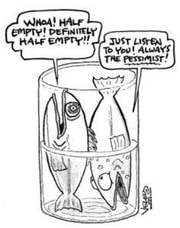 Many of us fall into one of two groups: pessimists or optimists. The question is whether we choose to be or simply are one of the two. Personally, I am an introvert and can drift towards melancholy if I'm not careful. Growing up in a positive family, I have learned to reply with 'fantastic' when asked how I'm feeling--even when I feel the opposite. The result is that I genuinely feel that I am 'fantastic' or, at least, positive most of the time. Now that I am in the world of authorship, I am facing the reality of selling into a marketplace of one million new books per year. I am confident that I have something to add to the 'great conversation' that is humanity but the slow sales can be demoralising. Then I look outside and the sun is shining, the rabbits are nibbling on the grass, and I realise that my book sales are irrelevant to the world and my happiness. That, however, is a cerebral realisation. My heart still yearns for more sales!  I received the news that I was to be interviewed live on a Talk Radio show out of Victoria, BC (Canada) last week. I shrugged, thinking that it would be an easy way to promote my book and begin my foray into media outlets as I launch my most recent book, Concentration Camps of Canada. Then I heard that the host actually read the entire book and had prepared questions. I began to feel anxiety. I started preparing my own notes and got quizzed by family members on potential questions. As the deadline for going on air loomed, I heard that the presenter was ill and was replaced by a new guy. I was disappointed because I thought that the 'new guy' would gloss over the issues and it would be a waste of time. When the time came, the 'new guy' was incredibly well prepared. He asked questions I hadn't anticipated and I forced myself to remain calm. I was given the drive-home slot at 5.30 pm - 6.00 pm. The thirty minutes flew by, interspersed with news, adverts, and fast-talking people. Actual interview time was just over sixteen minutes. It felt like sixteen seconds. What have I learned? You can never be over-prepared. I also wish I wasn't so congested and jet-lagged, but that is something I couldn't do much about. I also learned that I enjoyed it immensely. I would love to do more interviews, ideally in a more relaxed environment. Being 'live' creates a different intensity as you know your mistakes will not be edited out. For those who are interested, I have edited out the adverts and put it on my YouTube channel (link below). For those who are interested in my book, it is now out!  Last night, I listened to an hour-long explanation of the failings of my most recent writing. I keep moving between genres as I look for the best fit. This time, it was my attempt at 'chick-lit'. I thought it was light and happy with the usual romantic entanglements and a 'happily ever after' finish. Unfortunately, this was not what my new beta-reader told me. She hilighted a fair number of issues I didn't even realise were significant. Apparently, there is a difference between women's and men's outlook on life. Who would have thought? I wrote my draft in February and have let it sit in my drawer until now. I will let it sit in my drawer for another couple of months before I attempt to deal with all the points. The good news is that if I manage to address the points raised, my book will be a LOT better. Here's to finding great beta-readers!  It is now almost two months since I abandoned my intense (for me) workout schedule. I would row 10km and walk 20km daily in addition to at least four hours of writing. Now, I continue to eat as though I'm exercising but the body knows better. I have also transitioned away from my intense writing schedule. Now, I find my time filled with business and work-related writing. Before, business was relegated to afternoons and only after I had done at least four hours of creative work. Now, it is reversed. I need a break from a purely creative and contemplative existence. I am enjoying the mundane as it has become fresh for me. It has taken my creativity in another direction: I have written my first children's book. This is very short, but it holds the same level of intense scrutiny of a novel. I won't be publishing this until I have written a half dozen or so. I am also looking for an illustrator. I am following the model of 2,000+ words spread over 32 pages. Ages: 3-5. It is very different from my Man on the Run series (adult audience) or even Concentration Camps of Canada (young adult audience). I am able to now agree with Stephen King that writing isn't a way of life; it is a complement to life. Prior to this, I wouldn't have understood his wisdom. We'll see how things evolve over the coming months. Will keep you updated via this blog. 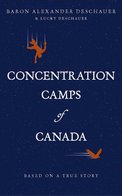 My most recent book, Concentration Camps of Canada, is now on NetGalley. A month ago, I had never heard of this site. It is for librarians, publishers, and professional (ie. hard-core) readers to read books before they are published. In the first few hours of being online, it has received over 15 positive votes for the cover artwork. This may not sound like much for people used to hearing about millions of books being sold. For me, it is the greatest compliment to receive positive feedback from fellow writers, professional readers, and possible distributors. It also means that they might actually open (and read) my book! This is a whole new world for me. I am very excited. 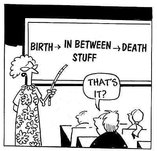 So many of us waste too much precious time pursuing topics that can never be verified or are without answer. I am one of those people. All of my writing seeks to find meaning in a world that is rarely more than indifferent to our existence. Today I unveil the truth. To achieve this, I will need to restrict the images we talk about in much the way we are restricted in how we think. I will use two-dimensional objects to describe a three-dimensional world (I’ll get to the additional dimensions another time). Let’s play monopoly. You can see the board on the table. You can choose where we sit. You can include any of your friends or family at the table. Visualise the table and the monopoly board. Good. Can you feel your elbows on the table or are you sitting back in your chair, quietly arranging your title deeds and money? Either way, we are going to play monopoly. For some reason, one of our guests pulls out a deck of cards. We continue playing monopoly for a few rounds before she starts dealing cards to each of us. We know her as someone who is quirky, so we smile and nod and continue playing monopoly. But, soon, we realise that she is not playing around. She is serious. We ask her what the heck she’s doing. “I’m trying to transcend this game; trying to get to the essence of what monopoly is all about,” she says. You and I continue to play monopoly, despite our quirky guest. Our other guests start playing cards and monopoly at the same time. Soon, another version of the card game is introduced and we join in. It doesn’t take long before we are all playing monopoly and multiple types of card games. We convince ourselves that we have transcended monopoly and are exploring the essence of what all games are. The reality: we are not playing monopoly. We are flaying about, busying ourselves with additional tasks to fill the emptiness of the game. By adding complexities, we convince ourselves that we are understanding the subtle nature of game theory, chaos theory, luck, chance, and even God. We aren’t. We may be multi-tasking, but we are not playing monopoly. Nor are we only playing poker, canasta, bridge, or any other card game. To play monopoly, we must follow the rules. To play poker, we must follow the rules. Yes, we can evolve and create a new game. But, it would no longer be monopoly or poker. There is nothing to transcend in monopoly. Likewise in poker. They are what they are. We are all confined within our boundaries. Any sense of transcendence or elevation into the spiritual realm is really the leverage of assets within our existing boundary. Example: Flying humans The dreamer invents a flying machine. It is the leverage of our intellect to break things down and create new things. The new things are made with very definitive purposes. Like us, all created things are limited. The flying machine can leverage its position through optics or weapons. This is not transcendence. It is only the application of other boundary-bound items. A symbiosis is created when sufficient amounts of these boundary-bound items co-exist. In nature, this is witnessed through evolution. For the unbelievers of this boundary-bound existence, this new ‘life’ is described as a miracle and is ascribed to God. Evolution and the addition of symbiotic boundary-bound elements is no more a miracle than the current smart phones and the interconnectivity within its circuitry and other online devices. Both may be described as miracles. Both are still boundary-bound. What about God and our spirit’s ability to connect to the infinite? 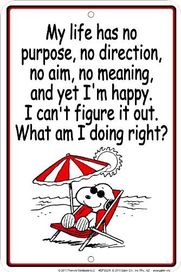 Any sense of spiritual enlightenment is the leverage of our boundary-bound existence. We may be evolved boxes, but our box’s size (and shape) is unknown. Our boundaries are not restricted to the tactile, visible, or knowable. If transcendence (where its definition means experience beyond the normal physical level) exists, it can relate to our ability to leverage our internal assets. Just as we can hear or see things that are outside of our body, we may have the ability to receive and project something from within us. This natural ability is powerful and not fully understood. As a result, this void has been filled with well-meaning spiritual leaders as well as charlatans. We must tread carefully with these assets. These are the same assets that provide us with our creativity. But, there are boundaries, and we must be aware of our limitations as well as our ability to leverage our assets. It can be called realistic transcendence for lack of a better term. Playing cards will not transcend monopoly. Self-knowledge is the best we can hope for. Cards are cards, and games are games. Each of us run on our own set of rails, many unseen. Like a train, we inexplicably make our way in a direction without fully understanding why. The first step is to recognise the rails we run on. In the final examination, we can only be who we are. The meaning of life is to be who you are. To be. 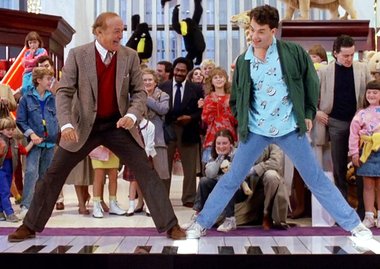 In the Tom Hanks' movie Big, there is a scene where Tom Hanks' character is sitting in a boardroom of executives who are presenting toys the company was considering buying/marketing. Hanks is actually a young teenage boy who got his wish to be 'big' and, while outwardly he was an adult, he remained a child inside. The toy being presented made no sense to him and he raised his hand when 'any questions' was asked. His question? "I don't get it." The result? The other executives realised that the toy being presented was vacuous and lacked any fun element. Naturally, this set up the antagonism between him and the executive and the romantic interest. But I don't want to go down that particular rabbit hole. I haven't posted any vlogs in the last couple of months for a simple reason: I don't get it. Yes, I understand the importance of a presence across various media platforms. Yes, I understand the arguments we, as authors, are told. But, I just don't get it. I am not having fun. This extends to Twitter and Facebook. I have now joined Instagram. I joined because I'm expected to be there. I added the stream to my Hootsuite program and I assume my missives are sent into the ether to be ignored along with the rest of the noise out there. I wonder whether this is my fault--for not sharing more personal thoughts or emotions. Perhaps if I open up, the world will open up to me. I share my thoughts and receive the same thing: indifference or polite 'likes' as people maintain contact. It is not that different to the almost imperceptible nod or smile that we share with commuters we never speak to yet see on a daily or weekly basis. As I write this, I am thinking that perhaps that's all these social platforms have become: curated commuter trains. With that image in mind, I begin to 'get it'. But I'm still not having fun. In terms of my vlogs, I think about the hundreds of millions of dollars Hollywood executives spend in making movies--just to garner our attention for an hour and a half (or so). Perhaps I need to 'up my game' and make an effort to put on a more slick presentation. Then I think about people like Amal Clooney. Yes, she is the wife of George, but she is also an amazing human rights barrister. When you google her, what comes up? What she wore, how she looks, and where she's going (glitzy parties or beach appearances). Amongst this noise is the work she does highlighting genocide amongst the Kurds (and Yazidis). She also represents Julian Assange, founder of Wikileaks. Pretty cool stuff. She says that a lot of good work happens behind the scenes away from the cameras and media. But, that being said, she also acknowledges that her being married to GC provides her with a platform to spread her message. That, I get. |
AuthorBaron A. Deschauer Archives
September 2017
Categories |